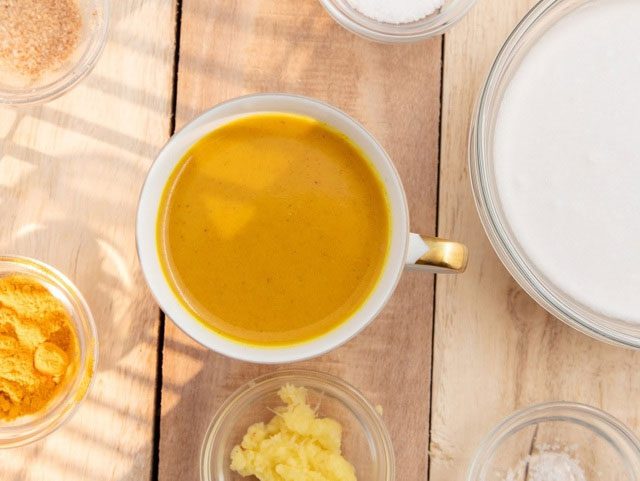Coffee is a popular beverage worldwide. When combined with various ingredients, coffee can yield a unique and distinctive flavor. Instead of just mixing it with milk and sugar, you can enhance your coffee with cinnamon and turmeric. By incorporating these two nutrient-rich spices, you’re transforming your cup of coffee into a “premium tonic” packed with health benefits.
Cinnamon
Just a pinch of cinnamon can make your cup of coffee taste completely different. American nutritionist Lisa Hayim points out that this combination not only enhances flavor but also offers health benefits.
Cinnamon is known as a natural fat burner, speeding up metabolism and burning excess calories, which can lead to significant fat reduction. Meanwhile, black coffee has been shown to help with weight management, enhance physical performance, and improve endurance. A 24-week study from Harvard Medical School indicated that drinking four cups of black coffee daily resulted in an average 4% reduction in body fat. Therefore, cinnamon coffee has the potential to boost effective weight loss.

A sprinkle of cinnamon in your coffee helps lower blood fat and supports heart health.
Both cinnamon and coffee are rich in antioxidants, protecting the body from damage caused by free radicals. Combining coffee with cinnamon doubles the antioxidant intake, which can help prevent colorectal cancer, liver cancer, and more.
According to a review published in the U.S. National Library of Medicine, adding at least 1.5g or ¾ teaspoon of cinnamon daily can reduce levels of triglycerides, total cholesterol, and harmful cholesterol in individuals with metabolic diseases. Another review based on 13 studies showed similar effects of cinnamon on healthy individuals, reducing the risk of heart disease and lowering blood pressure with continuous use over eight weeks. Thus, a hint of cinnamon in your coffee helps lower blood fat and supports heart health.
Turmeric
Turmeric is a widely used spice known for its coloring and flavoring properties in cooking. However, its benefits extend beyond that; when combined with coffee, turmeric offers promising health signals for consumers.
A study published in the American Journal of Nutrition and Metabolism in 2018 found that turmeric can help individuals with type 2 diabetes manage their blood sugar levels. Regularly drinking coffee with turmeric may reduce the risk of developing type 2 diabetes.
The curcumin in turmeric has antidepressant properties, and when combined with caffeine—which enhances alertness and refreshment in coffee—it creates a unique beverage that can effectively improve your mood.
In a separate study on turmeric published in the American Journal of Traditional and Complementary Medicine, turmeric was found to reduce inflammation, including conditions like rheumatoid arthritis. Thus, when combined with coffee, it creates a drink that can alleviate pain and redness associated with arthritis.

Turmeric coffee is a unique beverage that can effectively improve your mood.
Nutrition expert Shanta Retelny says: “Turmeric coffee is not a miracle cure. It’s merely a way to incorporate turmeric into your diet to gain some of its beneficial effects. However, turmeric coffee cannot replace medication for health issues.”
This expert emphasizes that this style of coffee drinking will yield maximum benefits when combined with a balanced diet rich in vegetables, fruits, whole grains, lean protein, and healthy fats.
Additionally, turmeric coffee still contains caffeine. “Drinking too much coffee or any caffeinated beverage can cause discomfort, lack of focus, irregular heartbeat, and poor sleep. It’s best to consume caffeine-containing beverages in moderation,” adds nutritionist Shanta Retelny.
According to the U.S. Food and Drug Administration (FDA), most adults can safely consume 400 milligrams of caffeine—equivalent to about four 8-ounce (approximately 240ml) cups of brewed coffee or six espresso shots—per day. If you are pregnant, the American College of Obstetricians and Gynecologists recommends limiting caffeine intake to no more than 200 milligrams.



















































